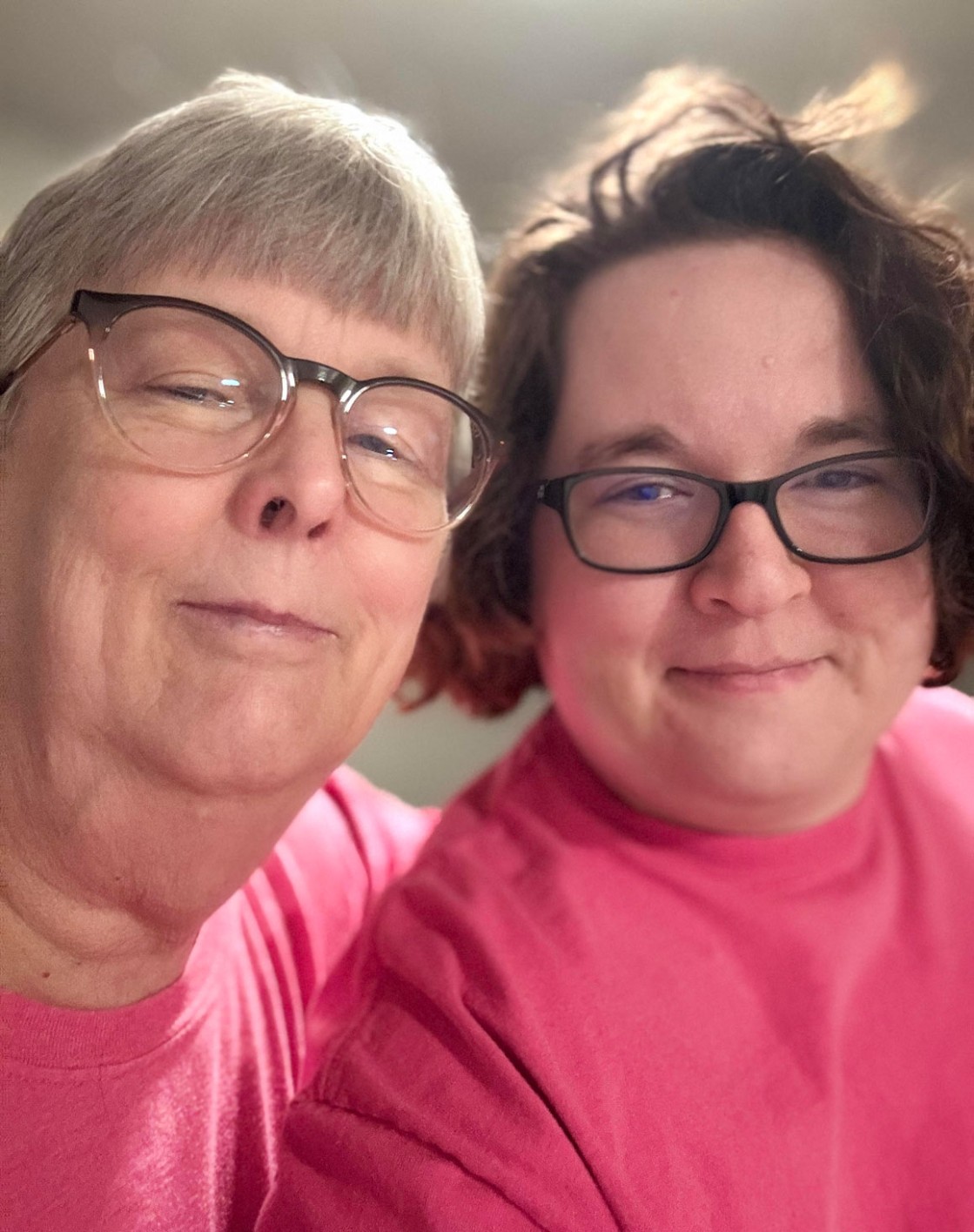But now, genetic testing for breast cancer can cover as many as 81 different genes, according to Elizabeth Hays, a genetic counselor with CHI Saint Joseph Health – Cancer Care in Lexington.
She said, “Testing prior to 2013 tested only one or a small number of genes and insurance criteria were much more strict," Hays said. “It used to be more difficult to find the right gene for families like the Robards.”
The genetic testing found that Trudy had a PTEN gene mutation, which is associated with a higher risk of breast cancer. Her diagnosis prompted her two daughters to also undergo genetic testing. Only Elizabeth had the same gene mutation, which prompted her first mammogram.
“Obviously, when I first found out about my mom’s cancer I was worried and devastated, because getting cancer at 34 vs. 69 is a whole different ballpark,” Elizabeth said.
Her mammogram immediately led to an ultrasound, which led to a biopsy on two different spots and, eventually, the diagnosis of breast cancer.
“If she (Trudy) wasn’t diagnosed this year, I was planning on putting off my mammogram until age 40,” Elizabeth said. “My mom and Dr. Croley kept saying, you need to have a mammogram.”
Because of the high genetic risk, and her mother’s experience with cancer in both breasts over the span of her lifetime, Elizabeth opted for a double mastectomy. Had it not been for her mother’s diagnosis and genetic testing, Elizabeth might have been like many other women her age who are diagnosed.
“My tumor was less than an inch … it was itty bitty, stage 1,” she said. “Dr. Strifling told me that usually patients my age come in with softball size tumors.”
Early diagnosis is a key to success in treating breast cancer. “Our main goal with genetic test results is to help people be proactive,” Hays said.
Once a genetic test shows a higher risk for developing breast cancer, providers can justify starting things – like mammograms – earlier than the recommended screening guidelines and add in additional screening such as breast MRI, she said.
Those eligible for coverage for genetic testing for breast cancer have a family member with breast cancer diagnosed under age 50 or have three family members – such as a mom, aunt, grandmother – who have developed breast cancer or anyone who has a male relative with breast cancer. Those who have had two separate breast cancer diagnoses are also eligible.
“The patient’s personal and family history of cancer are both important when determining the best test,” Hays said.
The general population risk of breast cancer is about 10 to 12 percent. Genetic testing can now analyze genes that are associated with a moderate risk of breast cancer – about 20 to 40 percent – and genes associated with a higher risk of breast cancer.
“We’re influencing their breast cancer screening by starting at younger ages and utilizing different methods,” Hays said. For some people, there is medication to reduce breast cancer risk.
Breast cancer is just one disease for which genetic testing is available, according to Hays. Genetic counselors can also test genes for ovarian, colon and pancreatic cancers. Hays recommends going through genetic counselors for the testing because they can determine the best tests for a particular situation.
“Large hereditary cancer tests have only been available for about 10 years so a lot of people don’t know about the extent of testing we can do,” she said.
For the Robards, they are grateful that they delved further into testing after Trudy’s diagnosis.
“I would encourage people to do the genetic testing for anything and everything that’s available,” Trudy said. “If you can get a handle on it at the early stage, you’re going to live longer.”
Elizabeth agreed. “It’s terrifying to receive the diagnosis but medicine has come so far,” she said. “It’s survivable and you can get through it. Early detection does save lives.”




